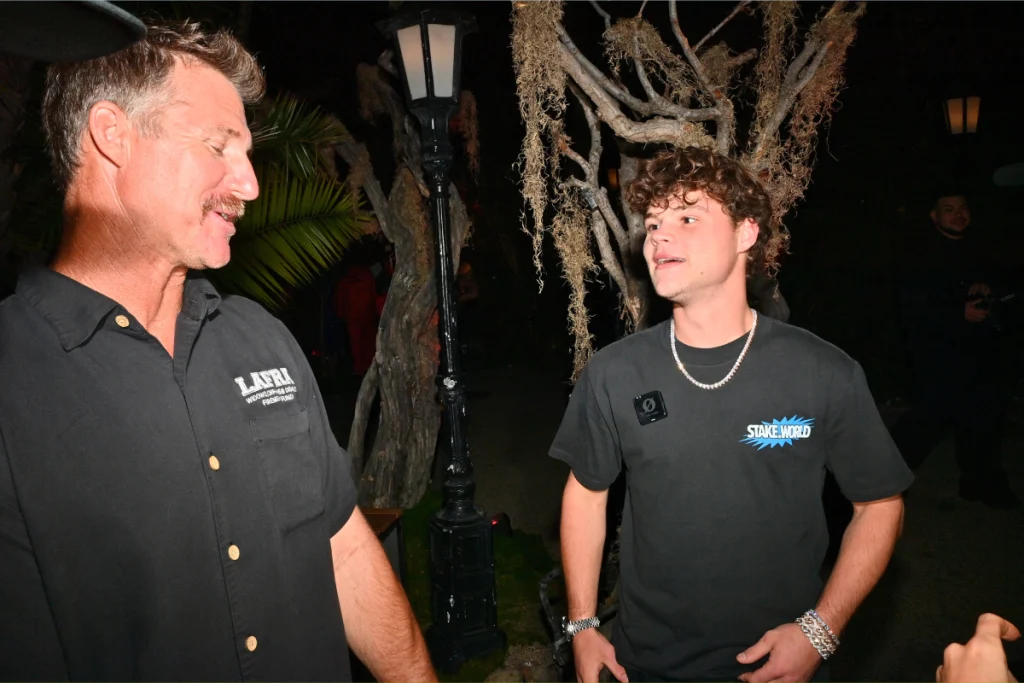Social Media Star Jack Doherty Arrested in Miami Beach During Video Stunt
Jack Doherty, the 22-year-old YouTube personality with nearly 3 million Instagram followers and over 15 million YouTube subscribers, was arrested in Miami Beach on November 15th after allegedly blocking traffic to film content for his social media channels. The incident has thrust the controversial content creator back into the spotlight, though not for the reasons he likely intended. Known for his boundary-pushing pranks and stunts, including videos with titles like “I crashed into a cop car,” Doherty’s arrest represents a sobering moment where the pursuit of viral fame collided with real-world consequences. According to police reports, he was taken into custody after repeatedly ignoring officers’ warnings to exit the roadway, an action that eventually led to charges of resisting an officer without violence. The situation escalated when officers discovered what they described as amphetamine pills and approximately 4 grams of suspected cannabis during his arrest, adding possession of controlled substances to his growing list of legal troubles.
The incident raises significant concerns about influencer culture and the lengths to which content creators will go for views and engagement. Doherty’s arrest didn’t occur in a vacuum—it represents a pattern of behavior common among certain social media personalities who prioritize shocking content over public safety and legal compliance. The dangers extend beyond just the influencers themselves; their massive young audiences may view such stunts as aspirational rather than cautionary. When someone with Doherty’s reach deliberately disrupts traffic for a video, it sends a troubling message to millions of impressionable followers that public nuisance behaviors are acceptable paths to fame and attention. This is precisely why Miami Beach Police emphasized in their statement that they remain “steadfast in its commitment to maintain public safety and order throughout the city—regardless of celebrity status,” highlighting the growing tension between internet fame and real-world responsibilities.
What makes this case particularly noteworthy is how it exemplifies the disconnect between online personas and real-world accountability. In the digital realm, pranks and disruptions often translate to views, likes, and revenue—creating financial incentives for increasingly risky behavior. However, as Doherty discovered, these actions have consequences beyond the screen. The Miami Beach Police Department’s decision to arrest Doherty despite his celebrity status demonstrates that law enforcement agencies are increasingly unwilling to tolerate public disruptions for the sake of content creation. After his arrest, Doherty faced a $3,500 bond, which reports indicate has since been paid, allowing for his release while awaiting further legal proceedings. The charges he faces are serious: possession of a controlled substance (specifically amphetamine), marijuana possession, and resisting an officer without violence—each carrying potential legal consequences that no amount of social media fame can easily dismiss.
The influencer ecosystem that has developed around figures like Doherty presents complex challenges for communities, law enforcement, and platforms alike. Content creators often operate in a feedback loop where more outrageous actions lead to greater engagement, which in turn incentivizes even more extreme behavior. This escalation can create a dangerous spiral where the boundaries of law and safety become increasingly blurred in the pursuit of notoriety. For communities like Miami Beach, a popular destination for influencers seeking photogenic backdrops, this presents real challenges in maintaining public order while respecting legitimate content creation. When stunts move from harmless pranks to traffic disruption and potential public endangerment, authorities find themselves forced to intervene. The fact that Doherty allegedly continued his disruptive behavior even after multiple warnings suggests a troubling disregard for both public safety and authority—attitudes that may be reinforced by an online culture that often rewards rebellion and spectacle.
Behind the headlines and arrest reports lies a broader conversation about responsibility in the digital age. While Doherty’s representatives at Delka Talents and his legal counsel have yet to issue public statements regarding the charges, the incident serves as a potential inflection point for both the creator himself and the industry at large. For younger followers, seeing a favorite influencer face legal consequences might provide a valuable lesson about the real-world implications of online-motivated behavior. It also raises questions for platforms that profit from and promote content that walks increasingly fine lines between entertainment and public nuisance. YouTube, Instagram, and other social media companies face growing pressure to consider not just the content that appears on their platforms but the behaviors their monetization systems might be encouraging behind the scenes. When creators feel compelled to block traffic or engage in other disruptive activities to maintain relevance, it suggests a system that may need recalibration.
As Doherty awaits potential formal charges in Miami-Dade County, his case stands as a cautionary tale about the evolving relationship between digital fame and civic responsibility. While court dates have not yet been made public, the coming legal proceedings will likely be watched closely by both fans and critics of influencer culture. The outcome could have implications not just for Doherty’s career but for how similar content creators approach their work in public spaces. For communities increasingly dealing with the real-world impacts of influencer stunts, the case represents an important precedent in establishing boundaries around public disruption in the name of content creation. Whatever the legal resolution, the incident serves as a reminder that even in an age where online notoriety can translate to significant financial and social capital, the rules of physical public spaces still apply—regardless of follower count. As the line between digital entertainment and public disruption continues to blur, cases like Doherty’s may become increasingly common flashpoints in the ongoing negotiation between internet culture and community standards.


